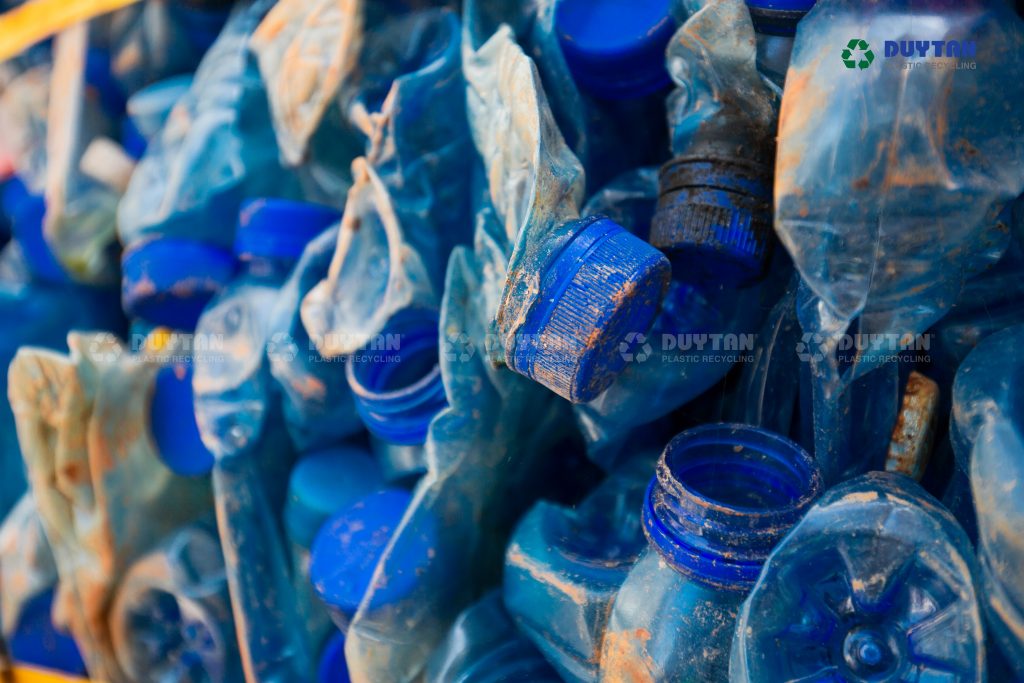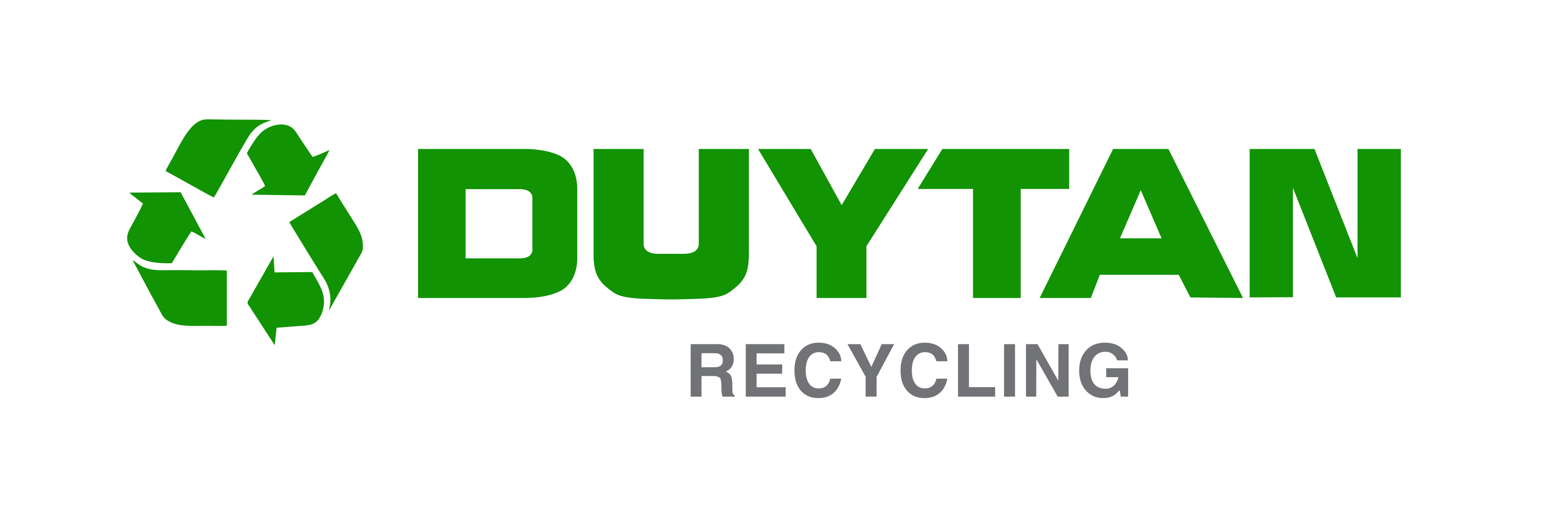Spending up to 60 million USD, sending a team of specialized personnel back and forth to find the right technology, establishing a network to purchase used bottles… Duy Tan Plastics accepts the difficult path when investing in a recycled plastic factory. That is one way for businesses to help solve the current burning issue of plastic waste.
 |
 |
“Many people believe that the current state of plastic waste is the fault of plastic companies. That is not the case with Duy Tan, because we manufacture household appliances that people have used for decades without breaking. But the situation compelled us to act.”, according to mr. Le Anh, Marketing Director of Duy Tan Plastics Company, mentioned the company’s motivation for investing in a 60 million USD recycled plastic factory in Long An.
This is the first factory in Vietnam to use the “Bottles to Bottles” recycling technology, which involves using old plastic bottles that have been recycled into plastic beads to make new plastic bottles.
According to Mr. Le Anh, Duy Tan’s strategy includes the development of a recycled plastic factory. That is why, many years ago, Mr. Tran Duy Hy, the company’s General Director, purchased land in the plastic industry cluster in Duc Hoa district, Long An province, with an area of up to 65,000 square meters, anticipating the day when the factory would be built.
In three years, the plan was hatched and put into practice. According to Mr. Le Anh, it was a time when members of the project committee worked hard and held meetings on a regular basis to find solutions. Because the recycled plastic factory is not like what Duy Tan used to do. “Whereas producing plastic from imported virgin plastic beads allows each machine to operate independently and the finished product to be sold, producing recycled plastic is much more difficult. To form a homogeneous system, the machines must be linked together. Everything must be meticulously calculated, which necessitates meticulousness and detail. Nonetheless, departments within the company, ranging from engineering, research and development, to purchasing and sales, must collaborate closely.” Mr. Le Anh explained.
 |
The most difficult part was selecting the technology, which Mr. Hy and the Project Manager, Mr. Huynh Ngoc Thach, handled. Mr. Hy and Mr. Thach traveled throughout Europe and even Hong Kong for two years to learn about technology supply factories and recycled plastic factories. There are numerous alternatives to consider. Finally, Duy Tan chose the technology of a supplier in Austria, a country with a developed recycling industry.
The biggest risk, according to Duy Tan, when implementing the project is that the supply and quality of raw materials for the recycling plant will not be guaranteed. For many years, recycling businesses have “cried out” due to inadequate waste sorting and treatment. Nonetheless, it is possible that more businesses will enter the market and share the supply.
“Because we have 33 years of experience in the industry and understand plastic and plastic beads, we decided to invest in the project. Once you’ve decided to do it, don’t look back; no matter how difficult it is. “Up to this point, all difficult problems and risks have been cleared up,” Mr. Le Anh stated.
Duy Tan has established a network of more than 80 qualified agents who purchase, sort, and bale used plastic bottles in order to supply raw materials for the recycling plant. Duy Tan buys processed plastic material by the kilogram, which is equivalent to about 200 bottles, and sells it to dealers at a higher price than the standard “bucket” selling price. The granaries are also suitable for collaboration with Duy Tan because there are more jobs available and they conduct reputable business.
Duy Tan collects 60 tons of used bottles every day in phase 1. When calculated over a year, this amount equates to 20,000 to 22,000 tons, which is a significant amount for the environment. When stages 2 and 3 are completed, the recycled plastic factory will produce approximately 100,000 tons of plastic beads per year and will not only stop at PET plastic as in phase 1, but will also produce PP and HDPE plastic. Many more plastic bottles and other plastic products, such as furniture, wardrobes, and so on, will be collected and recycled at that time, reducing the amount of virgin plastic used to make new products. This entails reducing the amount of oil used and thus helping to protect the environment.
The market is somewhat open because Duy Tan’s customers are willing to use recycled plastic, which is a bright spot and also a driving force for Duy Tan to quickly deploy the project. This is a strategy for businesses to grow sustainably, improve brand reputation, and meet stakeholder commitments. Plastic ingots made from recycled plastic and then used to make bottles are currently more expensive than embryos made from virgin plastic. Customers who have purchased from Duy Tan for many years, such as Nestle and Lavie, have researched and considered their possibilities. Meanwhile, another traditional customer, Unilever Vietnam, has signed a contract in principle, though the recycled plastic factory will only have commercial products in the fourth quarter of this year.
Duy Tan calculated that a first-phase output of 20,000 tons/year would be insignificant in comparison to market demand. Because there is only one customer, the volume of plastic bottles used is many times greater.
Meanwhile, many FMCG enterprises in Vietnam have joined the Vietnam Packaging Recycling Alliance (PRO Vietnam) have set the goal of collecting and recycling all packaging placed on the market by 2030. Duy Tan anticipates that the recycled plastic factory will be the company’s next driving force, accounting for 20-25 percent of total revenue.
That market potential is also one of the motivators for Duy Tan to quickly deploy the project, without looking at the competition or putting too much emphasis on whether or not the State’s support policy remains unchanged for a long time.
Because waiting will be troublesome, and the environment cannot afford to wait any longer. Of course, Duy Tan wants assistance with electricity, taxes, and so on. to increase investment motivation and attract more businesses to the recycling industry The more recycling businesses that exist, the more likely it is that the environment will be “saved.”
“We are doing everything we can to collect and recycle as much plastic waste as possible in order to reduce plastic waste in the environment. Larger issues, such as environmental protection and consumer awareness, necessitate the collaboration of multiple parties. While the rate of plastic use per capita in Vietnam is not the highest in the world, we are one of the countries that discharges the most plastic into the ocean, which is unfortunate,” said Mr. Le Anh.
